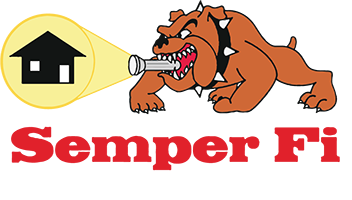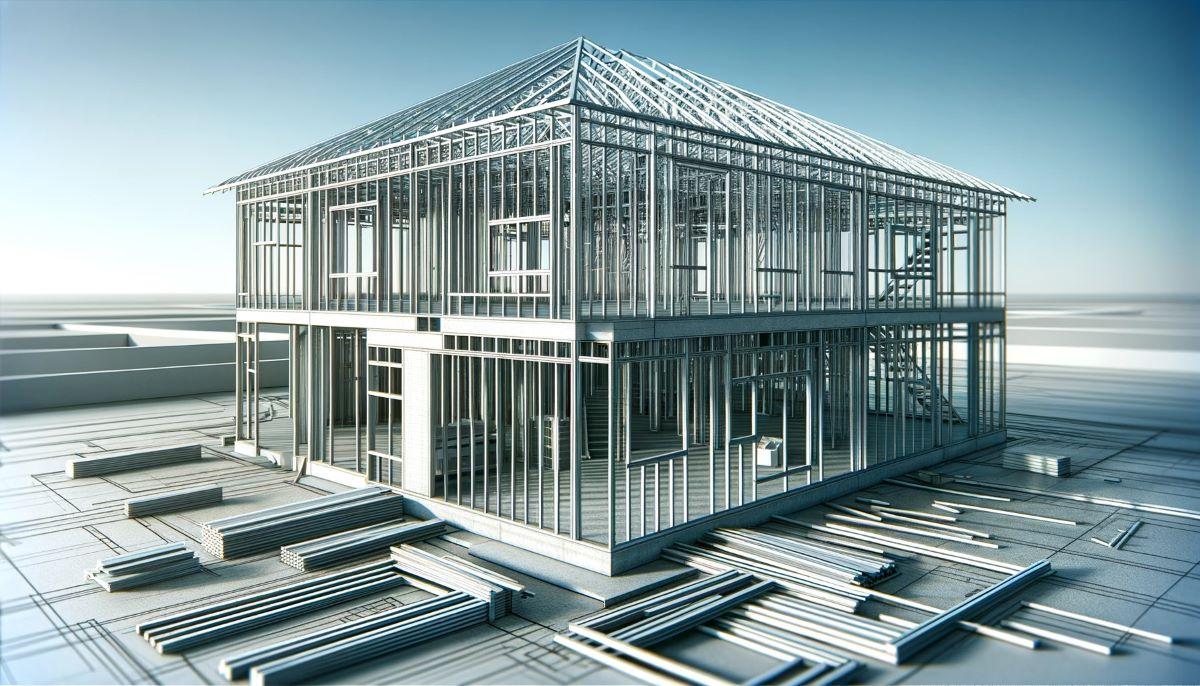The journey to building a new home is filled with excitement and aspirations. It represents a new chapter, a dream realized. However, this path can be fraught with hidden challenges that, if overlooked, can turn your dream home into a source of unexpected headaches and expenses. At Semper Fi Home Inspections, we’re committed to guiding you through this journey, ensuring your new home is not only a place of joy but also a bastion of safety and quality.
The key to safeguarding your investment in new home construction lies in understanding the value of a thorough home inspection through phase inspections of your new build. Phase inspections are a critical aspect of the construction process, offering a detailed examination at key stages to ensure everything is on track and up to standards, mitigating risks before they escalate. This critical step is not just a formality; it’s your first line of defense against potential issues that could compromise your home’s integrity and your family’s safety.
The Top Pitfalls in New Home Construction
When it comes to new home construction, certain pitfalls are more common than others. These are the issues that, if not identified and addressed early, can lead to significant problems down the line.
Structural Compromises
Structural issues are among the most significant problems in new constructions. These can range from inadequate foundation support to poor framing practices. A structurally sound home is paramount for safety and longevity, making it crucial to identify any such issues early on.
Electrical and Plumbing Oversights
Electrical and plumbing systems are the lifeblood of any home. Mistakes in these areas, such as improper wiring or poor plumbing connections, can lead to safety hazards and costly repairs. It’s essential to ensure these systems are installed correctly and in compliance with the latest codes and standards.
Substandard Building Materials
The use of substandard materials can severely impact the durability and safety of your home. Low-quality materials may lead to problems like water damage, mold growth, and overall deterioration of the home’s structure.
Poor Workmanship
Even the best materials can fail if not installed correctly. Poor workmanship can manifest in various forms, from uneven flooring to leaky roofs. These issues often result from hurried construction schedules or inexperienced labor.
Inadequate Ventilation and Insulation
Proper ventilation and insulation are critical for maintaining indoor air quality and energy efficiency. Overlooking these aspects can lead to higher utility bills, moisture problems, and discomfort in extreme temperatures.
Ignoring Local Construction Codes
Every region has its specific construction codes and standards. Ignoring these can lead to legal issues and risks to the home’s integrity. It’s crucial that your new home adheres to these regulations.
Understanding and adhering to local construction codes is not just about compliance; it’s about ensuring your home’s safety and longevity. These codes are in place to protect you and your investment.
Proactive Steps for a Hassle-Free Construction
To ensure a smooth construction process, it’s vital to be proactive. Stay informed, ask questions, and don’t hesitate to seek expert advice – including through getting new construction phase inspections performed.
FAQ about New Home Construction Inspections
- What are the most critical aspects to inspect in new home construction? The most critical aspects include structural integrity, electrical and plumbing systems, HVAC efficiency, roof and foundation quality, and adherence to local building codes. Ensuring these elements are properly constructed and installed is vital for the safety and longevity of the home.
- How can I ensure the materials used in my home are of high quality? Request detailed information on all materials from your builder, including brand names and quality ratings. Research these materials independently and consult with a professional inspector who can verify their suitability and durability for your specific needs and local climate conditions.
- What should I do if I notice poor workmanship during construction? If you notice poor workmanship, document the issues with photos and detailed notes, and discuss them promptly with your builder. If necessary, seek a second opinion from a licensed home inspector to ensure that all concerns are professionally validated and addressed.
- Are there specific local construction codes I should be aware of in the Dallas/Fort Worth area? Yes, the Dallas/Fort Worth area has specific local construction codes that address various aspects of building safety, energy efficiency, and environmental compliance. It’s crucial to consult with local authorities or a professional home inspector familiar with these regional codes to ensure compliance.
- How often should I conduct inspections during the construction process? Inspections should be conducted at several key phases: pre-foundation pouring, pre-drywall installation, and a final inspection upon completion. These phase inspections help identify and rectify any potential issues early in the construction process.
For a professional home or commercial inspection in the Dallas/Fort Worth Metroplex that will provide you peace of mind, schedule your inspection now
Call
682-351-2267
or book online



